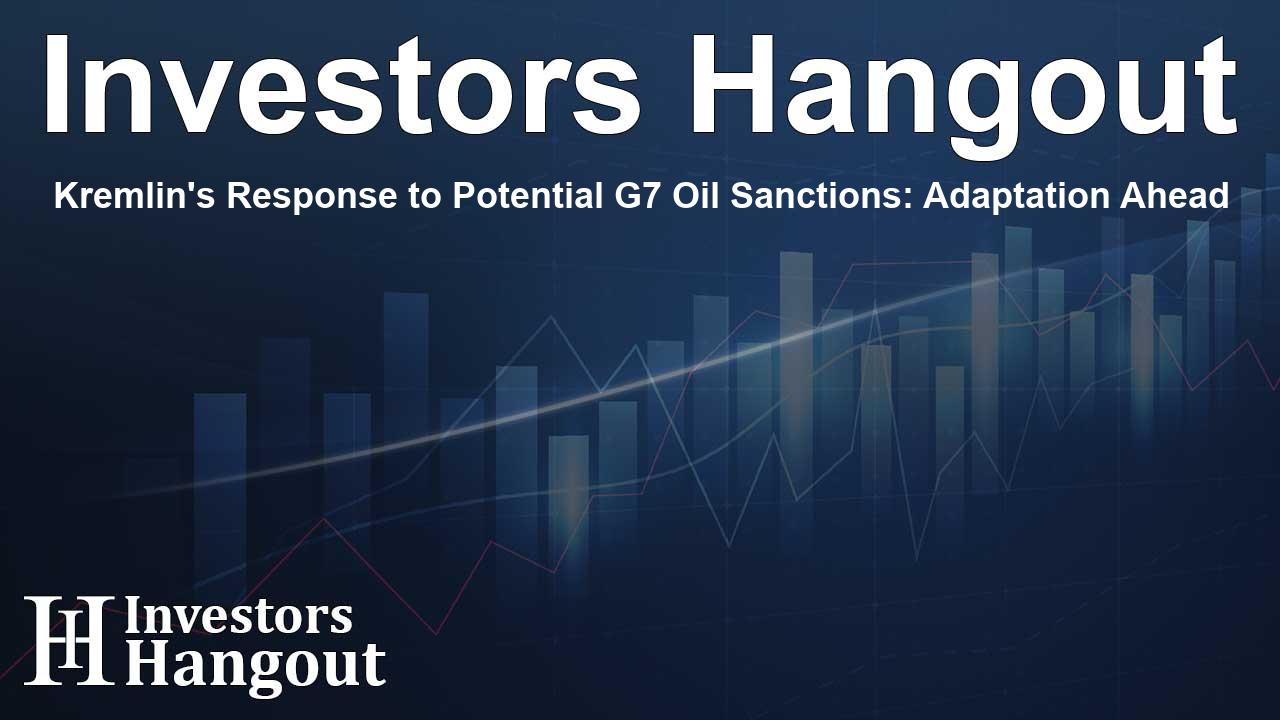Kremlin's Response to Potential G7 Oil Sanctions: Adaptation Ahead

Kremlin's Stance on G7 Oil Sanctions
The Kremlin has expressed strong opposition to the notion of new sanctions imposed by the G7 on its oil industry, stating that any such measures would be counterproductive. According to officials, the Russian government is prepared to take necessary actions to mitigate the effects of these potential sanctions.
Potential Changes to Price Caps
Recent reports indicate that G7 nations are considering a range of tightening options for the existing price cap on Russian oil. Currently set at $60 per barrel, there are discussions about lowering this limit significantly, potentially to around $40, or even replacing it entirely with a ban on handling Russian crude. This would represent a substantial shift in the G7's approach to managing the impact of Russian oil on the global market.
Implications for Global Energy Markets
Kremlin spokesman Dmitry Peskov addressed questions regarding concerns over the implementation of such measures, indicating that there would undoubtedly be risks associated with these changes. He emphasized that any actions taken by the G7 could have immediate repercussions on the stability of international energy markets.
Response to Economic Interests
Peskov articulated that the Kremlin would not only respond to these sanctions but would actively seek strategies to protect Russia's economic interests. He stated, "This will inevitably happen and will hit simultaneously those countries that make such decisions," highlighting the interconnected nature of global economies.
Russia's Preparedness
In light of these developments, the Kremlin is focused on implementing measures to ensure minimal disruption to its economic structure. Peskov reassured that measures would be put in place to lessen the fallout from these potential sanctions. The stance from the Russian government reflects a broader strategy of resilience and adaptation in the face of international pressure.
Future Projections
The ongoing dialogue among G7 countries suggests a growing concern over Russia's influence on global oil prices and energy supply chains. As negotiations and discussions continue, the Kremlin's proactive response emphasizes its commitment to navigating these challenges while safeguarding its economy.
Frequently Asked Questions
What is the Kremlin's position on G7 sanctions?
The Kremlin believes any new G7 sanctions would backfire and is prepared to adapt to minimize their impact.
What changes to the price cap are being considered by the G7?
G7 countries may lower the existing price cap on Russian oil from $60 to around $40 or implement a ban on handling Russian crude.
Who commented on the potential risks to energy markets?
Kremlin spokesman Dmitry Peskov expressed concerns about the risks of destabilizing international energy markets due to these sanctions.
What will Russia do in response to potential sanctions?
Russia plans to take necessary actions to protect its economic interests and mitigate the consequences of such sanctions.
What does this situation indicate about global interconnectedness?
This situation illustrates the complex interdependencies between countries regarding oil markets and economic stability.
About Investors Hangout
Investors Hangout is a leading online stock forum for financial discussion and learning, offering a wide range of free tools and resources. It draws in traders of all levels, who exchange market knowledge, investigate trading tactics, and keep an eye on industry developments in real time. Featuring financial articles, stock message boards, quotes, charts, company profiles, and live news updates. Through cooperative learning and a wealth of informational resources, it helps users from novices creating their first portfolios to experts honing their techniques. Join Investors Hangout today: https://investorshangout.com/
Disclaimer: The content of this article is solely for general informational purposes only; it does not represent legal, financial, or investment advice. Investors Hangout does not offer financial advice; the author is not a licensed financial advisor. Consult a qualified advisor before making any financial or investment decisions based on this article. The author's interpretation of publicly available data shapes the opinions presented here; as a result, they should not be taken as advice to purchase, sell, or hold any securities mentioned or any other investments. The author does not guarantee the accuracy, completeness, or timeliness of any material, providing it "as is." Information and market conditions may change; past performance is not indicative of future outcomes. If any of the material offered here is inaccurate, please contact us for corrections.